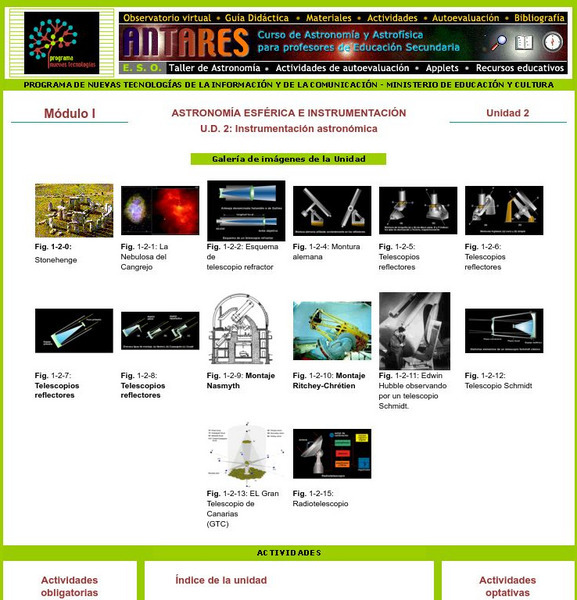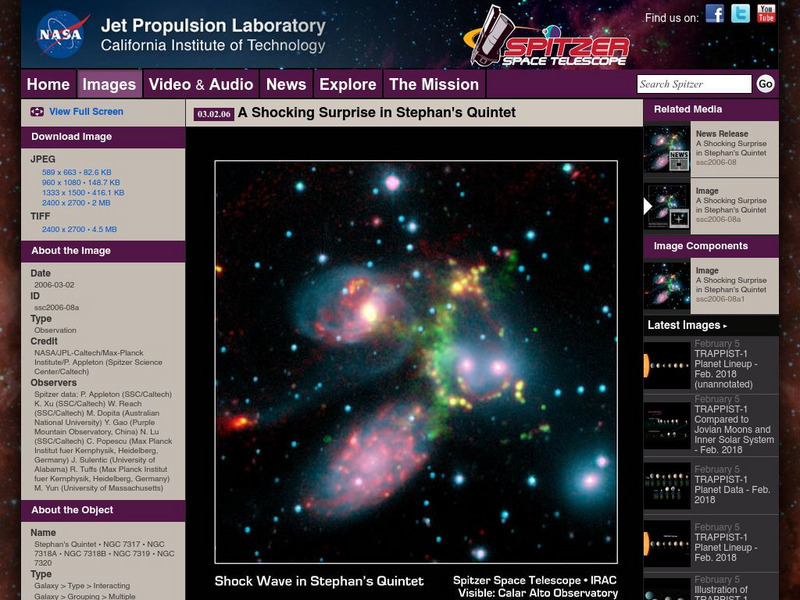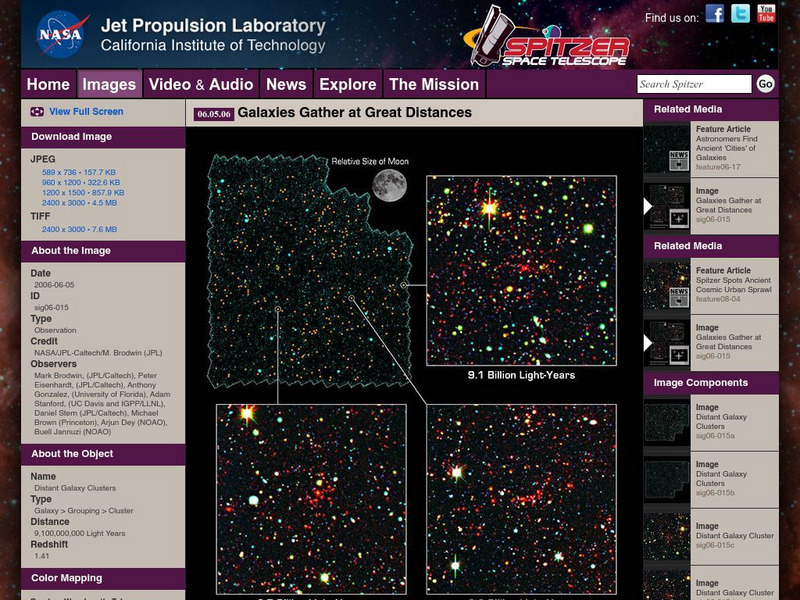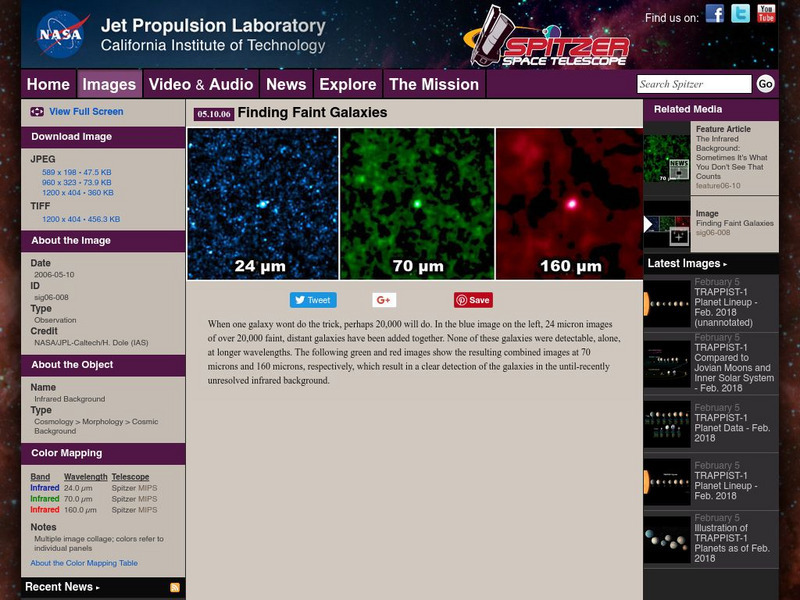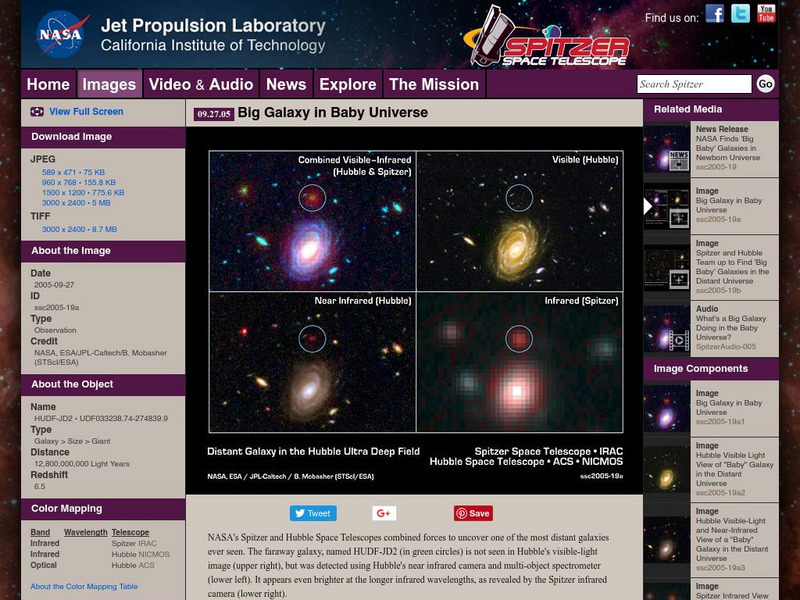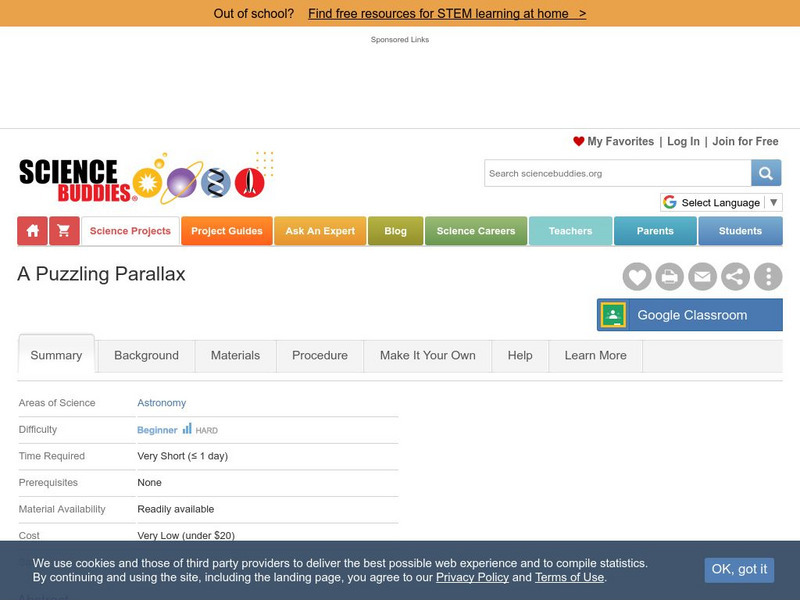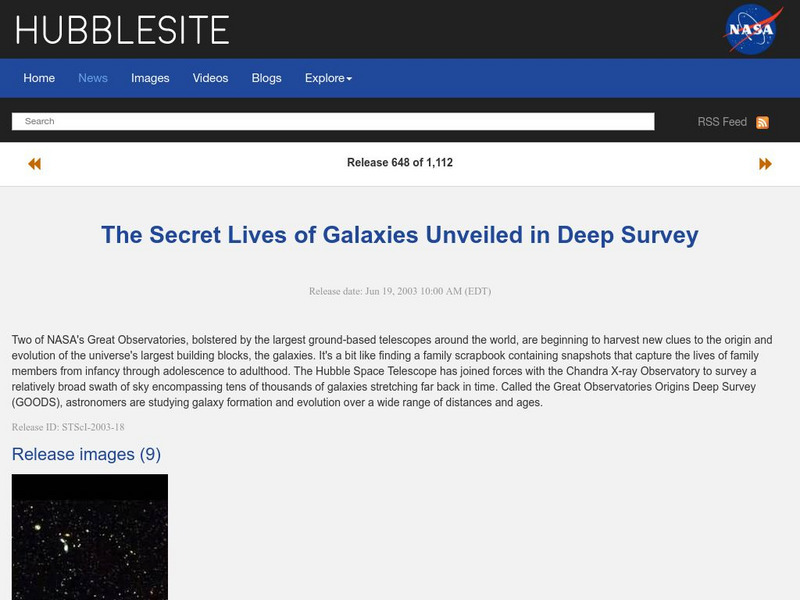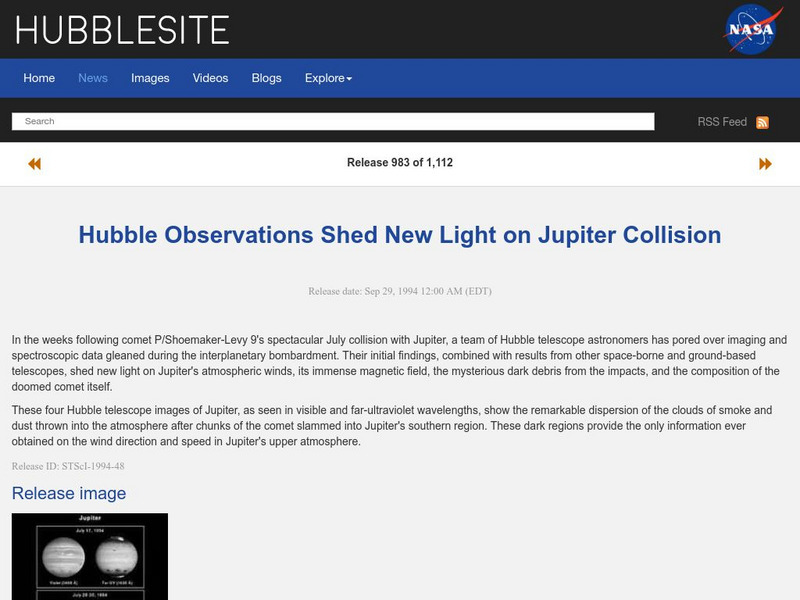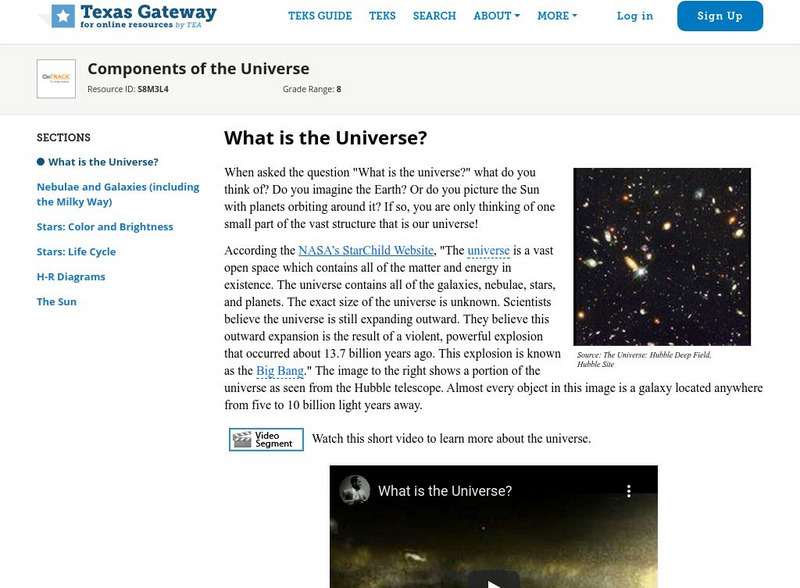CK-12 Foundation
Ck 12: Earth Science: Study of Space by the Electromagnetic Spectrum
[Free Registration/Login may be required to access all resource tools.] Overview of the electromagnetic spectrum.
Ministerio de Educación (Spain)
Ministerio De Educacion: Instrumentacion Astronomica Modulo I Unidad 2
In this unit you will combine all the major components of a telescope to obtain the desired system for different types of astronomical observations.
NASA
Nasa Star Child: Star Child
StarChild from NASA defines and describes the Solar System in a simple and easy-to-understand manner. The website is broken down into two versions for the student, grade school and junior high.
California Institute of Technology
Spitzer Space Telescope: Huge Hidden Halo!
The image presented at this site is a picture of the galaxy Messier 82, also known as the Cigar Galaxy. The text under the picture describes, in detail, the specifics of the image.
California Institute of Technology
Spitzer Space Telescope: Stephan's Quintet
Under the heading, "A Shocking Surprise in Stephan's Quintet" this site examines specific details of an image displaying a galaxy cluster named Stephan's Quintet. The text under the image serves to explain, in great detail, the specifics...
California Institute of Technology
Spitzer Space Telescope: Our Galaxy's 'Twin'
This image, titled "Morphology of Our Galaxy's 'Twin'" features three individual pictures of a nearby spiral galaxy that closely resembles our own. The text under the image details various specifics about the picture.
California Institute of Technology
Spitzer Space Telescope: Galaxies Gather
Under the heading, "Galaxies Gather at Great Distances" this site examines (and discusses) an image featuring a group and cluster of galaxies. The text goes on to describe details specific to the image.
California Institute of Technology
Spitzer Space Telescope: Finding Faint Galaxies
The brief text that accompanies the image at this site (titled Finding Faint Galaxies) describes details of the picture which features faint images of galaxies enhanced by infrared.
California Institute of Technology
Spitzer Space Telescope: Big Galaxy in Baby Universe
This image, titled "Big Galaxy in Baby Universe" features an infrared picture in four parts of a distant galaxy. The text under the image details various specifics about the picture.
California Institute of Technology
Spitzer Space Telescope: Dissection of a Galaxy
The Dissection of a Galaxy image offered here examines how a galaxy functions by taking it apart through an image. In addition, a detailed textual overview explains various specifics of the picture.
Unite for Literacy
Unite for Literacy: Earth and Sky: Soho Explores the Sun
Read about the work of the spacecraft SOHO and the things we have learned about the Sun from the pictures and information that it sends back to Earth. Book includes audio narration in 6 additional languages with text in English.
Science Buddies
Science Buddies: A Puzzling Parallax
Did you know that ancient astronomers could measure the distance to other stars? They could also distinguish between stars and planets. How could they do that without modern technology of telescopes? See if you can discover the link...
Other
Nikon Corporation: Feel Nikon: Universcale
Amazing site examines size from the most elementary particle to the extremities of space, and everything in between. This interactive feature will encourage you to look differently at your size in relation to the rest of the universe.
Harvard University
Smithsonian Astrophysical: Chandra X Ray Observatory
Chandra X-Ray Observatory is an space observatory designed to detect x-rays. The public web site gives information about Chandra and X-ray astronomy in general (in field guide). It also gives educational materials for teachers.
NASA
Nasa: Planetary Photojournal: Jupiter
Looking for images of Jupiter or its moons? This is the place to start. Pictures are available from both Voyager missions, Galileo Orbiter and the Hubble Space Telescope. Choose from images of the planet, the ring, any of the Galilean...
Space Telescope Science Institute
Hubble Site: Secret Lives of Galaxies
This site is provided by HubbleSite from NASA. "Telescopes around the world are beginning to harvest new clues to the origin and evolution of the universe's largest building blocks, the galaxies." Site offers links to images, video,...
Space Telescope Science Institute
Hubblesite: Observations Shed Light on Jupiter Collision
This site from Hubblesite of the National Aeronautics and Space Administration provides basic information and photographs of the collision of Comet Shoemaker-Levy 9 with Jupiter. A good site to check out on the subject.
PBS
Pbs Nova: A Conversation With Neil De Grasse Tyson
Nova offers an enlightening conversation with astrophysicist Neil deGrasse Tyson. Topics include origins of the universe, multidisciplinary approaches to science, exciting recent discoveries, his position as director of the Hayden...
Other
University of Leicester: Comets
A detailed look at comets. Content outlines our observational history, as well as the origins of comets and an explanation of the appearance of comets.
Other
Cometography.com: C/1995 01 (Hale Bopp)
This site provides a detailed overview of the comet C/1995 01 (Hale-Bopp), the great comet of 1997. Content includes discovery, and observational and orbit information, as well as several images.
Texas Education Agency
Texas Gateway: What Is the Universe?
The following tutorial is an explanation of what the universe is composed of.
Other
University of Leicester: Spiral Galaxies
Provides a general overview of spiral galaxies, including descriptions of the different classes of spiral galaxy.
University of California
University of California Berkeley: Classifying Galaxies
Find out how galaxies are classified and then see if you can apply that knowledge to identify the different types of galaxies. In addition to explaining Hubble's galaxy classification system, the site has links to Hubble Space Telescope...
TED Talks
Ted: Ted Ed: Nasa & Trappist 1: A Treasure Trove of Planets Found
Seven Earth-sized planets have been observed by NASA's Spitzer Space Telescope around a tiny, nearby, ultra-cool dwarf star called TRAPPIST-1. Three of these planets are firmly in the habitable zone. In this video, NASA Scientists...



